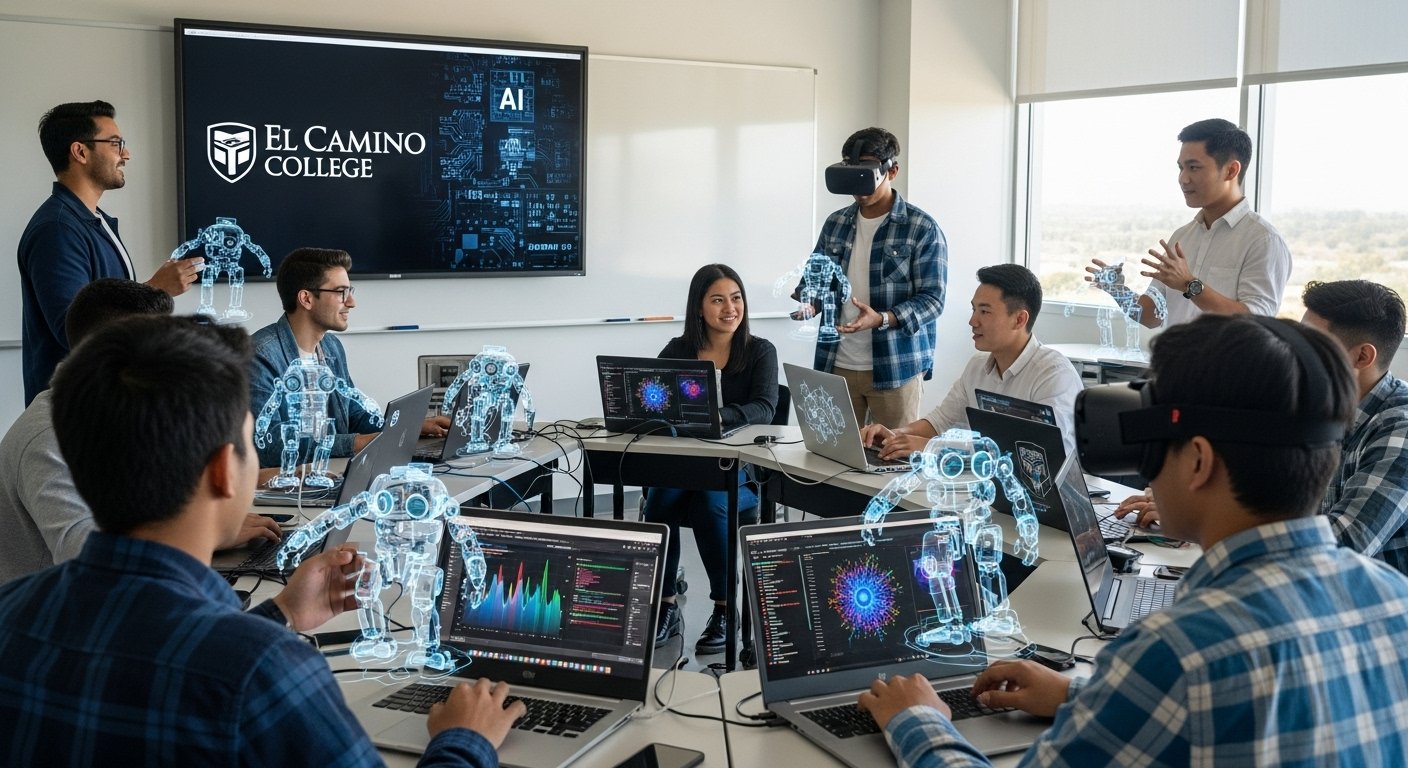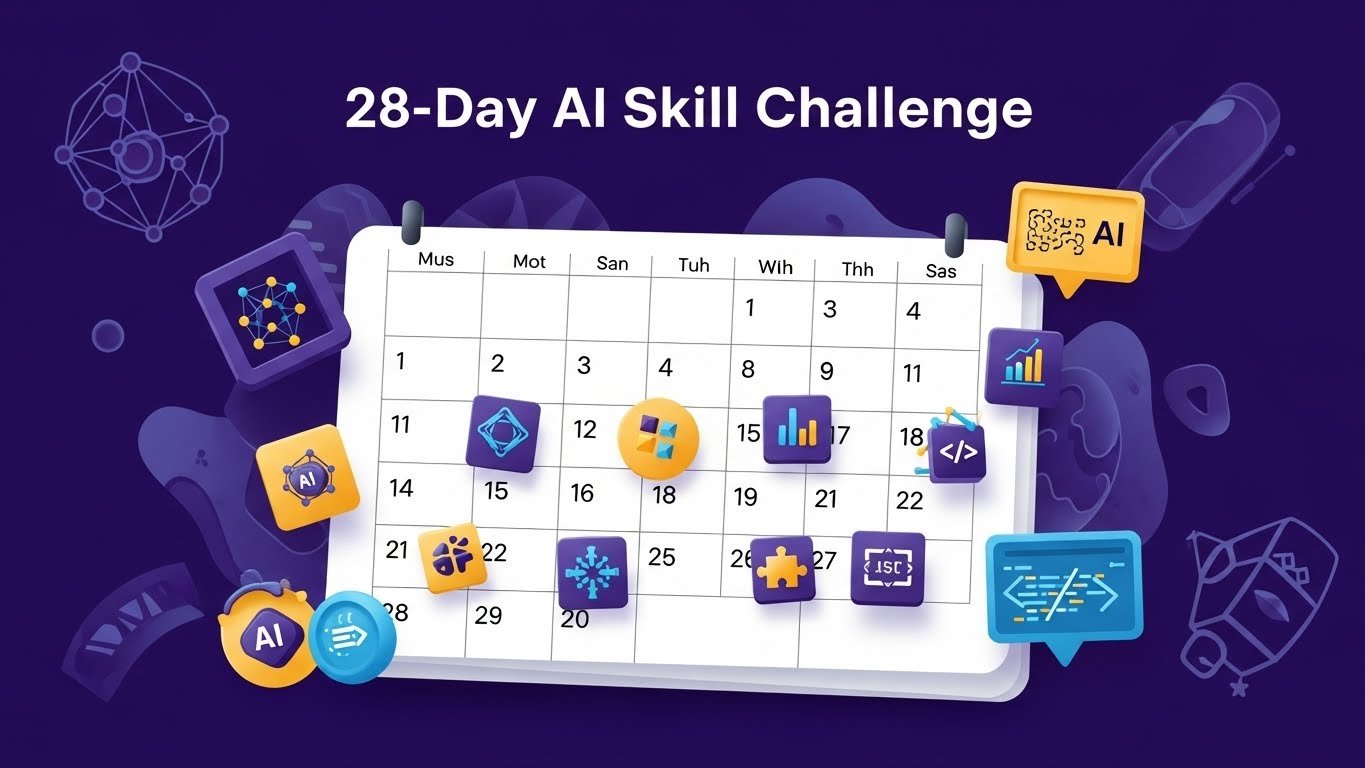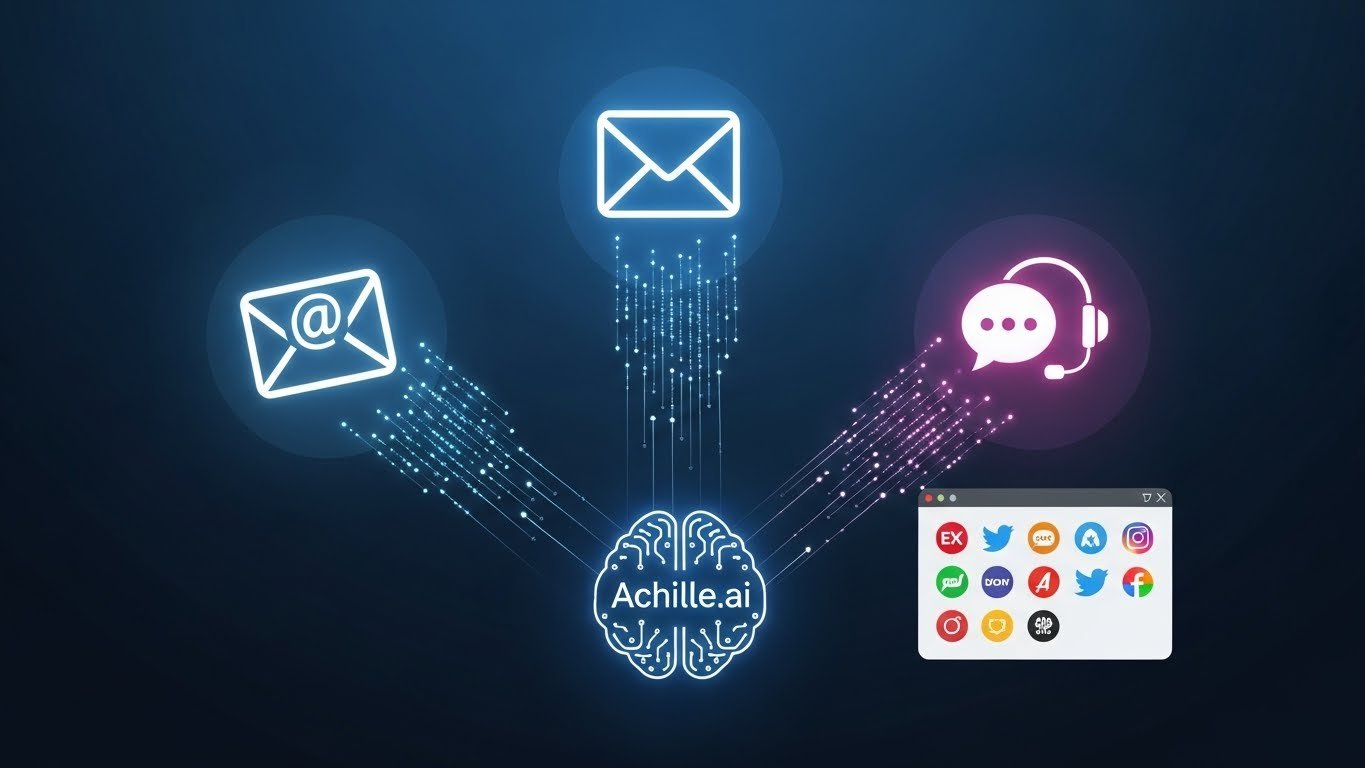If you’re curious about artificial intelligence and looking for a structured path to learning it, the AI course El Camino is a name you might come across. But what exactly is this course, who offers it, and is it worth your time?
In a world where AI is transforming industries—healthcare diagnostics, autonomous vehicles, personalized learning, recommendation engines, and more—knowing how AI works is no longer optional. An AI course can open doors to exciting roles as data scientists, AI engineers, or AI-savvy consultants. In this article, you’ll get a full, trustable, human-friendly rundown of the AI course El Camino: its features, who it’s for, pros and cons, plus practical tips if you enroll.
Let’s dive in.
What Is “AI Course El Camino”?
When people refer to “AI course El Camino,” they often mean one of a few offerings tied to El Camino College (ECC) in California, particularly its online workshops via Ed2Go, community education programs, or training initiatives through its Business Training Center. El Camino College is a public community college in Los Angeles County.
These AI-related courses are typically non-credit, shorter-format, online or hybrid, and designed to give foundational understanding of AI, its tools, and real-world applications. Below are some of the known offerings:
-
Introduction to Artificial Intelligence — an online Ed2Go course offered through El Camino.
-
Introduction to Machine Learning — a companion course that digs deeper into ML topics.
-
AI for Students: Ensuring Appropriate & Effective Use — a course exploring how AI can be ethically and effectively used in educational settings.
-
Microsoft Azure AI Fundamentals (AI-900T00) — a hands-on course relating AI fundamentals to Azure cloud services.Workshops & training through El Camino’s Business Training Center, focusing on upskilling in AI, smart manufacturing, digital transformation, and Industry 4.0 technologies.
Because these are non-degree, accessible, and modular, they are ideal for learners who want to dip their toes in AI before committing to a full degree.
Who Should Consider the AI Course El Camino?
Whether you should enroll in AI course El Camino depends on your background, goals, and learning preferences. Here’s who tends to benefit most:
✅ Ideal for These Learners
-
Beginners with little or no experience in AI, wanting a structured introduction
-
Students or professionals who want to understand AI concepts before investing in advanced studies
-
Educators seeking to use AI ethically in teaching
-
Working professionals in adjacent fields (IT, analytics, business) who need AI literacy
-
Anyone curious about how AI works, what tools are used, and how it affects industries
⚠️ Not a Replacement for Deep, Formal Education
If your goal is to become a research-level AI scientist, lead large-scale AI R&D, or get a PhD in AI, this course is only a starting point. You’ll eventually need deeper math, algorithms, rigorous coursework, and possibly graduate studies.
What You’ll Learn: Syllabus & Topics
The AI course El Camino offerings cover a broad set of foundational AI topics. Though exact modules depend on which variant you enroll in, here’s a representative breakdown (based mainly on the “Introduction to AI” Ed2Go offering).
Core Modules / Lessons
1. Introduction to AI
- What is AI? Types: Narrow, General, Superintelligence
- History and real-world AI examples
2. AI in Business & Society
- Consumer AI: chatbots, recommendation systems
- Industry transformation: healthcare, finance, logistics
3. Machine Learning Basics
- Supervised vs unsupervised vs reinforcement learning
- Training data, features, bias, evaluation
4. Neural Networks & Deep Learning
- Artificial neurons, activation functions
- CNNs, RNNs, LSTMs
5. Computer Vision
- Image data, detection, classification
- Use cases: autonomous driving, medical imaging
6. Natural Language Processing (NLP)
- Tokenization, embeddings, text generation
- Sentiment analysis, chatbots, translation
7. Time Series Forecasting
- Trends, seasonality, noise
- Applications in sales, weather, finance
8. Robotics & AI Integration
- Robots as AI agents
- Automation in manufacturing, drones, warehouse bots
9. Implementing AI Projects
- AI project lifecycle: data collection, model building, deployment
- Tools, frameworks, cloud services
10. AI and the Workforce
- Job transformation, new roles
- AI in business decision-making
11. Ethics & Explainability
- Algorithmic bias, fairness, privacy
- Transparent AI, accountability
12. The Future of AI
- Trends: neuromorphic computing, AI safety
- Emerging research directions
Because El Camino also offers machine learning and Azure AI fundamentals courses, those bring extra depth in ML algorithms and cloud-based AI.
Course Format, Duration & Cost
Here’s what you can generally expect from AI course El Camino in terms of format, delivery, and cost.
| Aspect | Typical Offering | Notes / Variations |
|---|---|---|
| Format | Online (self-guided or instructor-moderated) | The “Introduction to AI” course gives both self-guided (3 months access) and instructor-moderated (6 weeks) options. |
| Duration / Access | 6 weeks (moderated) or 3 months (self-guided) | Flexible learning pace is often allowed |
| Cost | ~$146 USD (for the Introduction AI course) | The Ed2Go course lists $146 for either format. |
| Prerequisites | Minimal; basic computer and browser skills | No deep math or programming required initially |
| Materials | Online modules, discussion boards, quizzes, projects | All materials delivered digitally |
Note: Prices and availability may change, so always check the latest on El Camino’s site or Ed2Go listing.
Key Benefits of Taking AI Course El Camino
When you enroll in AI course El Camino, here are the main advantages you can expect:
1. Structured, Guided Learning
Rather than piecing together tutorials from online sites, you get a roadmap curated by instructors or institutions, with deadlines, assignments, and progression.
2. Affordable & Flexible
At about $146 USD, it’s relatively affordable (compared to full degree programs). The self-paced option gives you freedom to learn at your speed.
3. Real-world Relevance
By covering topics like computer vision, NLP, robotics, and industry use cases, it bridges theory and reality.
4. Ethical Awareness & Literacy
Because the curriculum includes ethics and explainability, you get exposure to how AI impacts privacy, fairness, and trust—essential for responsible AI use.
5. Entry Point for Deeper Paths
After completing this course, you’re better equipped to pursue machine learning specializations, cloud AI certifications, or higher education in AI.
6. Institutional Credibility
Being tied to a community college gives legitimacy. Also, El Camino’s Business Training Center involves AI and “Industry 4.0” upskilling programs.
Challenges & Limitations
No course is perfect. Here are things to keep in mind:
-
Depth is limited: The course covers foundations but won’t make you a full AI engineer
-
No formal degree credit: These are non-credit offerings; not always transferable to degree programs
-
Pace responsibility lies with you: As with many online courses, self-discipline is essential
-
Updates & relevancy: AI evolves quickly, so some modules may become outdated unless updated frequently
-
Hands-on coding might be minimal: If you want heavy coding, you may need supplemental resources
Real-Life Examples & Use Cases
To bring it closer to reality, here are some practical AI use cases you might encounter (and learn) in AI course El Camino or afterward:
-
Chatbots for Customer Support: Many companies use NLP-based agents to answer queries 24/7.
-
Recommendation Engines: Platforms like Netflix or Amazon use AI to suggest content/items that match a user’s behavior.
-
Predictive Maintenance in Manufacturing: AI models forecast machine failures, reducing downtime.
-
Medical Imaging Diagnostics: Computer vision helps in detecting tumors or fractures.
-
Fraud Detection in Finance: AI flags anomalous transactions automatically.
-
Forecasting Demand: Retailers use time series forecasting to plan inventory.
-
Smart Robotics in Warehouses: Robots with AI navigate and pick items autonomously.
As an example, El Camino College itself uses AI tools: they have adopted LightleapAI for enrollment fraud detection (~95 % accuracy) to weed out fraudulent class registrations. They also provide Microsoft Copilot via student/faculty email accounts for generative AI use at campus.
These real integrations show how AI knowledge is not just theoretical—it’s impacting operations of the institution behind the course itself.
Tips to Make the Most of the AI Course El Camino
Here are actionable tips to maximize your learning and gain long-term benefits:
-
Set a weekly schedule
— Even self-paced courses benefit from structure (e.g. 3–5 hours per week). -
Work on mini-projects
— Try small AI/NLP/vision tasks using open datasets (e.g. sentiment analysis, image recognition). -
Supplement coding practice
— Use platforms like Kaggle, Colab, or free Python tutorials to reinforce your learning. -
Engage in discussion forums
— In moderated versions, ask questions, help others, discuss ideas. -
Stay up to date
— AI evolves fast. Follow blogs, research papers, podcasts (e.g. Towards Data Science, OpenAI blog). -
Document ethics reflections
— Keep a journal of ethical dilemmas (bias, privacy) you encounter and think through them. -
Network with peers
— Connect with classmates or local AI meetup groups to deepen understanding and collaborate. -
Plan next steps early
— After finishing, identify what you’ll take next: ML specialization, cloud AI certification, or portfolio building.
Conclusion
If you’re seeking a well-rounded, accessible introduction to artificial intelligence, the AI course El Camino is a commendable option. With modules covering everything from neural networks and computer vision to ethics and implementation, it can give you the solid ground you need to move on toward deeper AI specializations.
You’ll benefit from its structured format, flexibility, real-world examples, and institutional backing. The course won’t do the heavy lifting of turning you into a senior AI researcher alone—but it’s a perfect stepping stone. Combine it with self-study, coding practice, and continual learning, and you’ll be well on your way.
In short: AI course El Camino offers a trustworthy foundation, and your results will depend on how much effort, curiosity, and consistency you bring to the journey.
FAQs
Q1: Is the “AI course El Camino” part of a full degree?
No — the AI courses offered via Ed2Go and other channels at El Camino are typically non-credit / continuing education courses. They’re designed for foundational learning, not degree credit.
Q2: Do I need math or coding experience to start?
You only need basic computer skills and curiosity. Some programming concepts may appear, but these courses are meant to be beginner-friendly.
Q3: How much does it cost?
The approximate cost for the “Introduction to Artificial Intelligence” course is $146 USD for either the self-guided or instructor-moderated format.
Q4: Can this course help me get a job in AI?
It’s a good first step. For job readiness, you will need deeper experience (hands-on projects, programming, specialization). But this course gives you foundational understanding to build upon.
Q5: Does El Camino College use AI themselves?
Yes. For instance, the college adopted LightleapAI for enrollment fraud detection. Also, Microsoft Copilot is available to students and faculty via El Camino email.








Leave a Reply